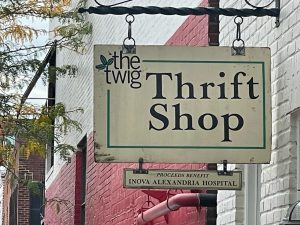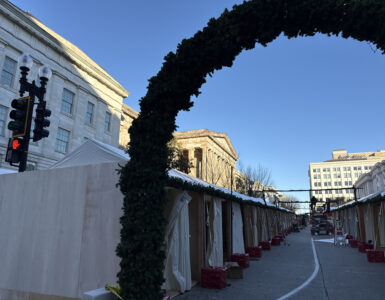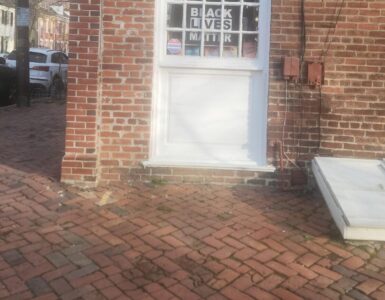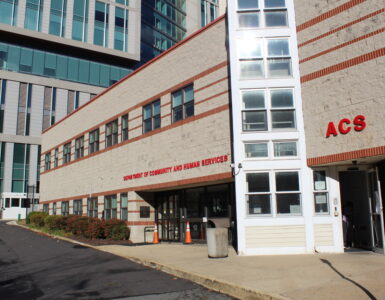The Alexandria Office of Historic Preservation wants to document Old Town Alexandria’s ever-changing history through interviews.
To achieve this, the city last month opened an Oral History Center aimed at preserving memories and stories through verbal interviews with community members.
The Oral History Center is currently located at The Lloyd House on 220 North Washington Street. The center provides information on how to conduct an oral history on the Alexandria City website.
Francesco De Salvatore, manager of the Alexandria Oral History Center, said he hopes to acquire a building specific to oral histories by next year to make the experience more interactive.

The new Oral History Center offers training and services to community members who want to document their stories in a public online historical archive.
Old Town Alexandria’s city government dedicated funds and resources to a “full-time” oral history center, according to De Salvatore. Funds for the center came from the city, grants, and the American Rescue Plan Act.
Old Town Alexandria’s archaeological department conducted oral histories in the 1960s and ’70s. But it was not until last September that the Old Town Alexandria Council ordered a center dedicated to oral history.
The center launched the “StoryKit” program to teach the community how to conduct an oral history, its methods, and practices so that community members can create historical records for themselves.
“One aspect is collecting the everyday life, Alexandria. But the other aspect is actually training people and putting people in charge of the interpretation and preservation of their histories and the city’s history,” De Salvatore said.
The Oral History Center also partners with other local organizations for community-driven on efforts. One such project is the preservation of Douglas Cemetery, a historic 1895 Black burial ground.

The once-forgotten sight fell into disrepair and poor condition until recently when the City of Alexandria, Old Town Village, the Social Responsibility Group, and the Friends of Douglass Cemetery became interested in caring for the cemetery, according to the City of Alexandria.
“In terms of oral history, we are going to be working on recording descendants of the cemetery, and there’s many, there’s dozens,” De Salvatore said, “These efforts preserve various outlooks and lifestyles within Old Town.”
The Oral History Center assists with programs outside the Old Town Alexandria area. The center used conservation and oral recording practices to document the Samuel Madden community near Old Town, a site currently used as a 66-unit affordable housing community, according to the Samuel Madden website.
The new Samuel Madden Redevelopment project in Alexandria will redevelop the housing unit to include a “sustainable mixed-use community with affordable and workforce housing,” according to the Samuel Madden website.
“Part of the mitigation efforts is to record people who lived there in the past and currently,” De Salvatore said.

Oral histories are crucial for understanding a community and documenting life, according to Dan Kerr, an American University professor and past president of the Oral History Association. Community members can share their experiences and provide first-hand accounts of historical moments through their unique voice, style, interpretation, and behavior.
The Twig, an Old Town Alexandria-based nonprofit organization founded in 1933, is one of the first community-oriented organizations to use the services provided by the Oral History Center.
“The Twig is going to be celebrating our 90th year next year, and so I wanted to record and put down our participation in the growth of Alexandria.” The Twig President, Michele Cumberland, said.
The Twig is an Old Town Alexandria-based nonprofit that exclusively donates funds to the Alexandria Hospital. “The Twig” name refers to “a small branch of the tree which supported Alexandria Hospital,” according to The Twig’s website.
The Oral History Center program aims to detail the lives, actions, memories, and perceptions of Alexandria with a focus on communities that “commonly and unfortunately were pushed out of historical narratives,” according to De Salvatore.















Add comment